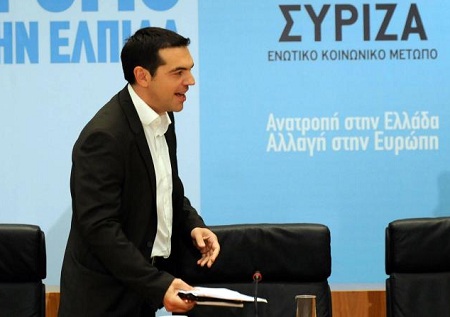Here’s your Monday update on the Greek coalition talks.![]()
All three of the top party leaders have been unable to form a government, and President Karolos Papoulias, over the weekend, has been unable to bring the top leaders together to join a unity government.
New elections, likely to be held June 17, are now all but certain:
Greece’s biggest anti-bailout party, SYRIZA, defied overtures to join the government Sunday, deepening the impasse. Leader Alexis Tsipras won’t attend a new meeting called by Papoulias Monday for 7:30 p.m., state-run NET TV reported, without saying how it got the information.
“SYRIZA won’t betray the Greek people,” Tsipras said in statements televised on NET TV after the meeting with Papoulias and the leaders of the New Democracy and PASOK parties. “We are being asked to agree to the destruction of Greek society.”
Papoulias spent the day trying to coax the country’s three biggest parties into a coalition after a week of talks failed to deliver on mandates to form a government. If Papoulias’s efforts fail, new elections will need to be called. Monday’s meeting will be with the leaders of two of the three biggest parties, and the head of the smaller Democratic Left party, NET said.
Greece’s political impasse since the inconclusive May 6 election has raised the possibility another vote will have to be held as early as next month, with polls showing that could boost anti-bailout SYRIZA to the top spot. The standoff has reignited concern the country will renege on pledges to cut spending as required by the terms of its two bailouts negotiated since May 2010, and, ultimately, leave the euro area.








